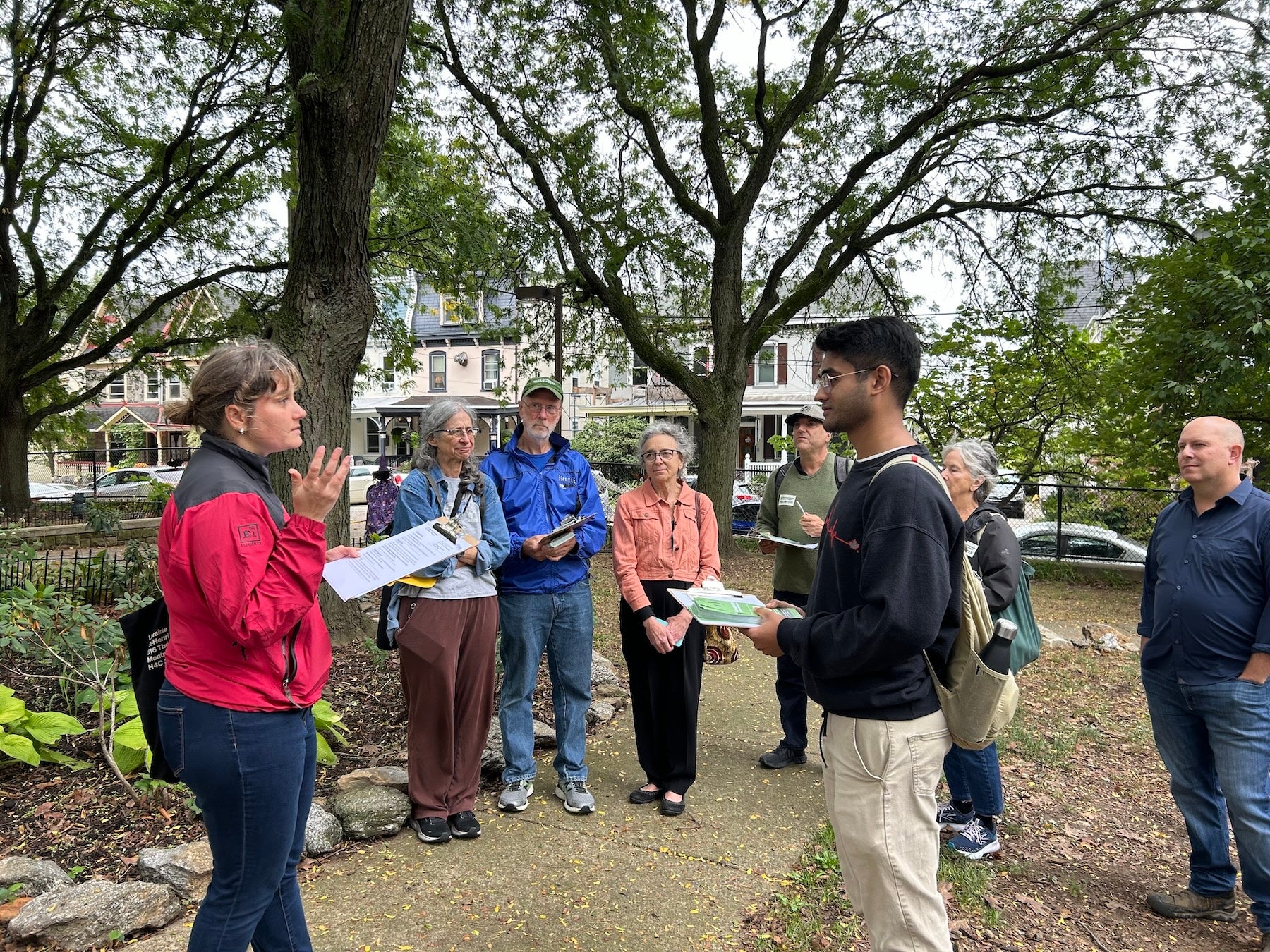
This story is part of the WHYY News Climate Desk, bringing you news and solutions for our changing region.
From the Poconos to the Jersey Shore to the mouth of the Delaware Bay, what do you want to know about climate change? What would you like us to cover? Get in touch.
A small group of volunteers gathered at a park in Philly’s Manayunk neighborhood on a recent Sunday, wearing stickers with green check marks on their shirts.
They prepared to fan out across the neighborhood, knocking on the doors of people identified as likely to care about climate and the environment — but who don’t tend to vote on Election Day.
“Today we’re going to be talking to registered voters who are … unlikely to vote in this upcoming election, about getting out to vote,” Hilary Naiberk, a South Philadelphia resident who works in the insurance industry, told her fellow volunteers.
Concerning the presidential race, Pennsylvania will likely be decided by a razor-thin margin, so political canvassers are descending on the state to try and pick up any votes they can — including people who care deeply about climate and the environment, but rarely or never vote.
Naiberk helps lead canvassing in Philadelphia for the Environmental Voter Project, a national nonprofit dedicated to building a base of environmental “super-voters.” Philadelphia is one of four cities where the group is canvassing this fall.
“Politicians will only lead on climate when voters force them to,” said Environmental Voter Project founder Nathaniel Stinnett.
Stinnett says there are two ways the organization could pursue its goal. One option would be to try to convince voters to care more about climate change, which Stinnett says would be “hard and messy and expensive.” The other option is to convince people who already care about climate to vote.
“That’s a little bit easier,” he said.
So, the organization uses surveys to find people who already count climate as their top political priority, Stinnett said. Then, the group uses demographics, where people live and consumer behavior — like whether they’ve recently bought an electric vehicle — to find more people they think have potential to become consistent environmental voters.
“Young people are disproportionately likely to list climate as a top priority,” he said. “The second most likely age group … is people 65 and older.”
The organization has found that people of color — especially Black, Asian American and Pacific Islander, and Native American voters — are more likely to list climate as a top priority than white voters, and women are more likely than men, Stinnett said. The group has also found that people who buy Apple products and partake in outdoor exercise are more likely to list climate and the environment as top priorities.
“It is a combination of 20 or 30 data points that help us identify these folks,” Stinnett said.
The organization is nonpartisan, so their canvassers don’t talk about candidates or parties.
In the presidential race, the two candidates are far apart on climate change. Former President Donald Trump has called climate change a “hoax” and while president, rolled back a number of climate-related rules. While Vice President Kamala Harris has touted the country’s record oil and gas production in recent years, she has also vowed to “tackle the climate crisis” and promoted the federal government’s historic investment in clean energy under the Biden-Harris administration.

إرسال تعليق